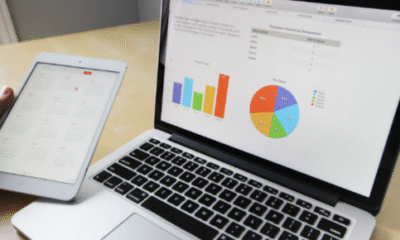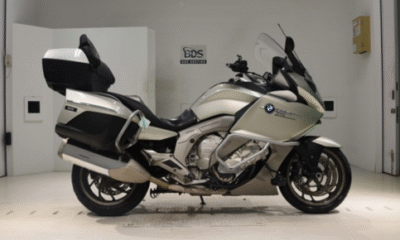Business
Cost-Per-Click (CPC) Campaigns for Commercial Establishments
Cost-Per-Click (CPC) campaigns have become a popular and effective advertising strategy for commercial establishments looking to increase their online presence. With the rise of e-commerce and digital marketing, CPC campaigns offer businesses an affordable way to reach their target audience and drive traffic to their website. In this article, we will explore the basics of CPC campaigns, how they work, and why they are a valuable tool for any commercial establishment’s marketing strategy. Whether you are new to CPC or looking to improve your current campaign, this guide has got you covered.
What is a CPC Campaign?
A Cost-Per-Click (CPC) campaign is an online advertising model where advertisers pay each time a user clicks on one of their ads. This form of paid search advertising allows businesses to bid for ad placement on search engine results pages (SERPs) when users search for specific keywords related to their products or services.
How Does it Work?
The first step in setting up a CPC campaign is choosing the right platform. The most popular and widely used platform for CPC campaigns is Google AdWords, followed by Bing Ads and Yahoo! Search Ads. Once you have selected your platform, you can start creating your ad.
To create an effective CPC ad, you will need to select the right keywords that your target audience is most likely to use when searching for your products or services. You can do this by conducting keyword research and using tools like Google’s Keyword Planner. After choosing your keywords, you will then need to set a bid amount for each click on your ad.
The bid amount is determined by various factors such as competition for the selected keywords and your budget. The higher the bid, the more likely it is that your ad will appear in prime positions on SERPs.
How Much Does a Click Cost?
The cost of a click will vary depending on your chosen keywords, competition, and various other factors. The average CPC across all industries is around $2.32 per click, but this can range from as low as $0.10 to over $20 for highly competitive keywords.
How Is Cost Per Click Calculated?
The cost per click is calculated by dividing the total amount spent on ads by the number of clicks received. For example, if you spend $100 and receive 50 clicks, your CPC would be $2.
Why are CPC Campaigns Important for Commercial Establishments?
CPC campaigns are crucial for commercial establishments because they offer a direct and measurable way to drive traffic to their websites, ultimately leading to increased sales or conversions. By targeting specific keywords related to their products or services, businesses can place their ads in front of potential customers who are already interested in what they have to offer. This targeted approach makes CPC campaigns highly effective and efficient, allowing businesses to maximize their advertising spend by reaching the most relevant audience.
Furthermore, the ability to track clicks and conversions in real time enables businesses to quickly adjust their strategies for better performance, making CPC campaigns an indispensable tool in the digital marketing arsenal of any commercial establishment looking to thrive online. When considering commercial CPC campaign management, you can purchase a yearly subscription of a CPC campaign from a reputable internet-based company to kick-start your online marketing strategy and reap heaps of financial benefits from it. CPC campaigns. These offer several benefits for commercial establishments looking to boost their online presence and attract potential customers.
Some of the key advantages include:
- Targeted Advertising: With CPC campaigns, businesses can reach a specific audience that is actively searching for their products or services. This ensures that your ad is seen by potential customers who are more likely to convert into actual sales.
- Cost-Effective: Unlike traditional advertising methods like print or TV ads, CPC campaigns only charge you when someone clicks on your ad. This makes it a cost-effective option for businesses with limited marketing budgets.
- Measurable Results: One of the major advantages of CPC campaigns is the ability to track and measure results in real-time. Platforms like Google AdWords provide detailed analytics and reports, allowing businesses to adjust their campaign strategies accordingly for better performance.
How to Cut Down Costs on CPC Campaigns?
While CPC campaigns can be an affordable option for online advertising, it is essential to keep costs in check to maximize your return on investment (ROI). Here are some tips to help you cut down costs on your CPC campaigns:
- Choose the Right Keywords: Conduct thorough keyword research and select keywords that are relevant to your business and have lower competition. This will allow you to bid at a lower cost and still reach your target audience.
- Optimize Your Landing Page: A well-designed landing page can improve the user experience and increase the chances of conversion. Make sure your landing page is optimized with clear call-to-actions and relevant information for visitors.
- Regularly Review and Adjust Your Campaigns: Monitoring the performance of your CPC campaigns and making necessary adjustments can help you optimize costs and improve results. Make sure to review your campaign analytics regularly and adjust bids, keywords, and ad content as needed.
CPC vs. CPM vs. CPA: What’s the Difference?
Cost-Per-Click (CPC) is just one of the many pricing models used in online advertising. Here’s a brief overview of how it compares to other popular models:
- Cost-Per-Mille (CPM): In this model, advertisers pay for every thousand ad impressions, regardless of whether or not users interact with the ad.
- Cost-Per-Acquisition (CPA): This model charges advertisers based on how many conversions they receive, such as purchases or sign-ups.
Pros and Cons of CPC Campaigns
Like any advertising strategy, CPC campaigns have both advantages and drawbacks. Here are some pros and cons to consider when deciding if a CPC campaign is right for your business:
Pros:
- Targeted Advertising: As mentioned earlier, CPC campaigns allow businesses to reach their target audience at the right time when they are actively searching for products or services.
- Measurable Results: With detailed analytics and reports, you can easily track the performance of your CPC campaigns and make adjustments accordingly.
- Cost-effective: Only paying for clicks means that your ad budget is being used effectively, without wasted spend on impressions that may not lead to clicks or conversions.
Cons:
- High Competition: Popular keywords can be highly competitive, making it challenging to rank high on SERPs and driving up the cost per click.
- Requires Ongoing Management: CPC campaigns need regular monitoring and adjustments to ensure optimal performance, which can be time-consuming for businesses with limited resources.
CPC campaigns are a valuable tool for commercial establishments looking to advertise their products or services online. With the ability to target specific audiences, cost-effectiveness, and measurable results, it is no wonder that these campaigns have become a popular choice for businesses of all sizes. By understanding how CPC works and implementing effective strategies, businesses can drive more traffic to their websites, increase conversions, and ultimately grow their bottom line.
















You must be logged in to post a comment Login